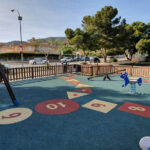
The concept of responsibility is crucial to a child’s development, instilling responsibility in children as a parent is important, and it is vital that parents and caregivers start teaching it at an early age.
The definition of responsibility is “being dependable, making wise decisions, and accepting blame for your actions.” It entails attributes such as dependability, accountability, taking credit and accepting blame for mistakes, keeping commitments, and meeting obligations, in addition to following regulations and performing duties.
Teaching responsibility in children is essential for their success in school and in life.
The most important character quality you can foster in children is responsibility. Children who are responsible grow up to be contributing and kind members of society. It takes time to teach a child to be responsible. It evolves over time as a result of constant modeling.
Responsible teenagers do not arise out of nowhere. The foundation is laid as early as childhood. Hence, methods of parenting such as “helicopter parenting” which has become a common word in recent years, goes beyond being an overprotective parent. A helicopter parent really harms a child’s cognitive development by removing the necessity for children to problem solve and make decisions. So, as parents, what can they do to raise a responsible child?
Here are some ways in which parents and caregivers can help instill responsibility in children:
Eliminate blaming
Children learn from their mistakes, and blaming them might lead to a bad attitude toward responsibility. Instead, assist them in comprehending the repercussions of their acts and how to make better decisions in the future. When bad things do happen, it’s simple to blame someone. However, blaming teaches kids to be defensive, which eventually leads to lying. Instead of blaming, teach children to take responsibility and avoid characterizing them as irresponsible.
Designate chores
Children can learn responsibility by helping with household activities and housework. This could entail cleaning their room, doing laundry, or assisting with meal preparation. Giving children duties around the house teaches them responsibility and motivates them to be helpful. Sure, completing the work yourself is frequently easier and faster, but it does not teach a child responsibility. Make chores more enjoyable by turning them into a game or using music. Accept that the task will not always be completed properly, but it enables children to learn.
Things happen
Recognize that accidents and unforeseen occurrences can happen. Teach children to accept responsibility for their actions while also acknowledging that everyone makes errors. The milk is spilled. Things break, and messes are unavoidably made. Rather than becoming angry or assigning blame (as we mentioned above), teach children that when accidents occur, we clean up. When milk spills in the middle of dinner, smile and offer paper towels to mop it up. Children are significantly more inclined to pitch in when messes are addressed calmly and positively. Of course, saying this is simpler than doing it. Anyone who has children knows that it is easier to send them out of the room after an angry outburst and clean up the spill, but doing so does not teach responsibility, whereas integrating children in the cleanup does. So stay calm. It happens.
Allow them to do things themselves
Allow children to take charge of tasks and projects. This teaches kids to take initiative and accept responsibility for the outcome. Of course, putting a child’s clothing on or brushing their teeth is easier on a hectic morning, however, this does not instill accountability. Hence, in this scenario, allow enough time in the morning or before leaving the house for kids to complete those tasks on their own.

Create routines
Consistency is essential for fostering accountability. Establishing routines and schedules teaches children the value of following through on duties. Therefore, structure actually helps children perform better at home and school. Morning and bedtime habits such as hand washing, showering, and brushing teeth and hair are critical for good hygiene. Setting aside time for schoolwork helps children develop good study habits. Laundry, making the bed, setting the table, and cooking meals are all important life skills for children to have before they leave for college. It is not about conditioning them, it is about helping them establish consistency in areas of life.
Encourage them to assist
When a child offers to assist, accept their help. This fosters a sense of accountability and a desire to contribute. Especially, when children are young, they have a desire to assist their parents with domestic tasks. Participating in the same activities as their parents, from washing the dishes to dusting the home to folding the clothing, encourages them to feel useful and normalize completing chores as they get older. Allow them to assist you when they ask. It may make the work take longer to complete, but it is a significant step toward accountability.
Provide opportunities for children to “work for pay”
By earning money through tasks or chores, children can learn the importance of hard work and responsibility. Giving them the opportunity to earn money for completing activities is simply another step on the road to responsibility. Earning an allowance is one method, as is paying children for more difficult chores such as car washing. If you have older children, encourage them (tweens and adolescents) to look for modest jobs around the neighborhood, such as dog walking, leaf raking, or lawn mowing.
Encourage problem-solving
Encourage problem solving by teaching children to think critically and solve challenges. This will assist them in becoming more self-sufficient and accountable. One of the reasons why helicopter parenting is bad for a child’s growth is that it discourages problem-solving skills. Learning how to address difficulties is an important aspect of responsibility. Instead of interfering, provide direction and demonstrate problem-solving steps.
Don’t immediately get involved
Allow children to learn from their mistakes and accept responsibility for the consequences rather than automatically bailing them out. This helps kids learn the significance of keeping their promises.
Don’t merely pay up if your child misplaced a school or library book (as an example). Allow your child to pay for the missing book with his or her allowance or pay a portion of the cost. When kids have to contribute to the cost of a damaged window or smartphone, they will learn to be more cautious and thus responsible.
In closing
We want our children to mature into responsible adults as parents. Responsibility is an important character attribute that leads to academic and career success. Teaching a child to be responsible begins at home and at a young age. Modeling responsibility and accountability can help you raise a responsible child. Hence, to summarize, developing responsibility in your child(ren) is an ongoing process that involves both work and patience. Parents and caregivers can help kids develop a strong sense of responsibility and a desire to make positive contributions to their communities by integrating these tactics.









